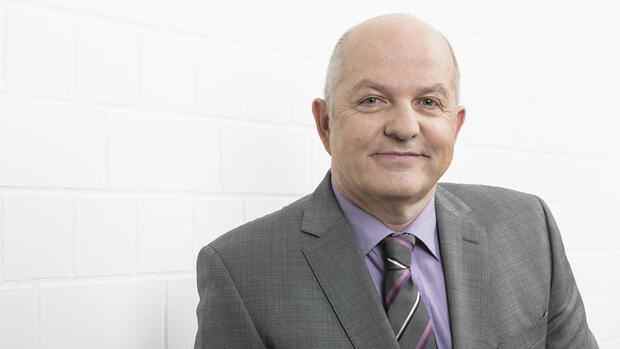Cologne The decision of the district court of Bückeburg on January 14 is just three pages long. He orders “the interim administration of Charles Smethurst’s fortune for the security of the estate and the protection of creditors.” It is the end of the economic freedom of movement of a man whom many regarded as a genius real estate tycoon – and entrusted him with their money. That was a mistake.
Today, 61-year-old Smethurst can no longer make any financial decisions without the provisional liquidator. Apart from a small garnishment exemption, Manuel Sack, who was appointed by the court, is now in charge of all money matters. Smethurst must disclose to him what he spends and earns, what he has and what he does not have. When asked, Sack explained that he wanted to get an overview first and not give any information at this stage.
A few years ago, Smethurst was one of the most dazzling people on the scene. In specialist publications, the German-British was described as the “gentleman of the real estate industry”. His rise began in 2008 with the founding of Dolphin Trust GmbH, a project developer specializing in monuments. Smethurst’s motto: “A New Future For History”.
Dolphin Capital later became the German Property Group. For many years, Smethurst raised money primarily from foreign investors. They trusted in the “Listed Buildings in Germany” advertised by Smethurst. The logic: In a country with a great building tradition and a strong sense of building history, such properties could only increase in value.
Top jobs of the day
Find the best jobs now and
be notified by email.
Today, the public prosecutor’s office in Hanover is investigating Smethurst and other people associated with the group. The list of allegations against him is long: possible investment fraud, breach of trust, acts of bankruptcy and delay in bankruptcy. The company is said to have not used the money from private investors primarily for the advertised real estate projects. Instead, among other things, high commissions were paid to those who raised the money.
Suspicion of a Ponzi scheme
There is evidence that it was a classic pyramid scheme. In such a fraudulent business model, the early investors’ returns are offset against the later investors’ investments. The system is designed to attract more and more participants with promises of above-average returns. It collapses when the volume of new depositors is no longer sufficient to serve the existing customers.
Another characteristic of Ponzi schemes are nested structures. In the case of Smethurst, the authorities noticed years ago that the businessman had created a network of almost 200 companies that he controlled via interfaces at will.
Smethurst has since made several statements to authorities. It was never his intention to harm investors, even if he deceived them, he said. His lawyer left a recent inquiry from the Handelsblatt unanswered.
Justus von Buchwaldt has been the insolvency administrator of the German Property Group since October 2020, later he also took over the mandate for Dolphin Capital 80, which served as a kind of capital collection point for the company network. He filed for bankruptcy against Charles Smethurst. Von Buchwaldt speaks of possible claims “in the three-digit million range” against the 61-year-old. “They result from the fact that Charles Smethurst is liable as a managing director and as a personally liable partner,” says von Buchwaldt.
Smethurst himself has declared in an affidavit that he is penniless. Insiders, however, doubt that there are actually no more assets. “It is at least striking that Smethurst does not list all the foreign investments in which he is or was involved,” says von Buchwaldt.
Bad prospects for creditors
It is already apparent that a large part of the money for investors is irretrievably lost. “We process claims registrations worth around 1.2 billion euros. A claim is often filed in different procedures,” says von Buchwaldt. This is contrasted with real estate with a value between 100 and 150 million euros.
According to the insolvency administrator, unsecured creditors do not have much to expect. “To their chagrin, all valuable properties are encumbered with property liens, so that investors will often not benefit from the sale of the property.” Most of the customers came from abroad. The group was mainly active in Great Britain, Ireland and in Asian countries such as South Korea, Singapore, Japan and Malaysia.
Von Buchwaldt has started to sell the properties and has since sold four properties. Around 20 properties are to be put into commercial use in 2022. Overall, however, the portfolio is modest: the group had a good 50 properties in its portfolio, many of which are dilapidated and in extremely poor condition. Several of the alleged luxury properties advertised in the glossy brochures of the German Property Group turned out to be ruins.
Charles Smethurst lives on in a beautifully restored former farmstead in a small town near Hanover. The house is said to no longer belong to him, but to a Swiss company. It is not known who is behind it.
More: Preliminary insolvency administrator issues German Property Group company a devastating testimony
